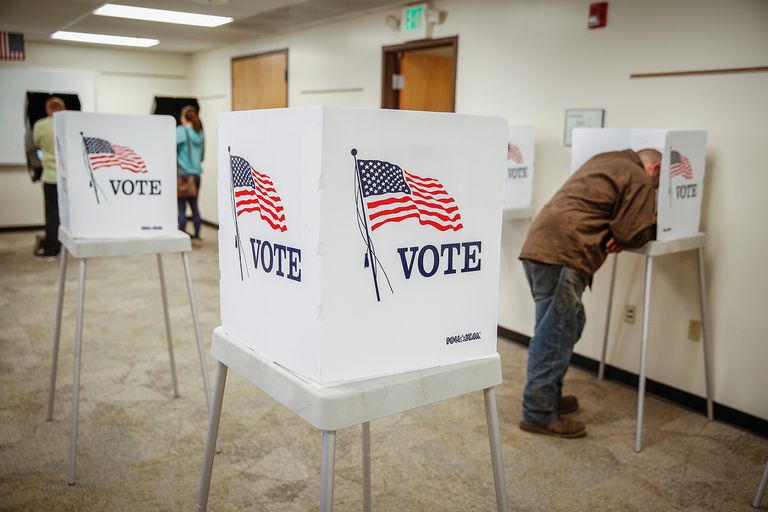The Indiana Senate elections committee voted earlier this week to approve a bill requiring all voting machines used in the state have a paper audit trail by July 1, 2024.
But several voting groups say Indiana is taking the an expensive path that won’t provide the level of election security that experts recommend.
At issue are the MicroVote machines used in 59 of the 92 counties in the state, including in several of the most populous counties – Allen, Lake, Tippecanoe, Hamilton, Hendricks, Johnson and Boone. The machines are direct-recording electronic voting machines, or.
Unlike other voting machines that have voters fill out a paper ballot by hand and then have it scanned into a machine, the MicroVote machines have voters make a selection on the electronic machine itself, by pushing buttons. They produce no paper record of the votes cast. This means that an election in a county using these machines cannot be audited and in the event of a recount, only absentee ballots can be recounted.
But there is a fix. MicroVote makes printers called “vvpats” –voter verifiable paper audit trail printers – that attach to the machines and provide a paper record of the voter’s selections.
In testimony before the Senate elections committee, Barbara Tully, of Indiana Vote by Mail, told senators vvpat printers don’t actually print out something the voter can hold in their hands and examine. They can only view it through plastic, and it’s hard to read, she said.
In a letter that Indiana Vote by Mail and three other groups sent to senators on the committee Feb. 10, they urged them to reject the plan to have all counties use the MicroVote machines buy vvpats for all of their voting machines by 2024, calling the MicroVote machines “obsolete” and saying the vvpat printers make it difficult or impossible for voters to verify their selections as the information showing their selections is on thin strips of paper in a hard-to-read font they can only view through a window.
“Moreover,” they write, “the vvpat rolls are extremely ill-suited for audits and recounts. The lightweight thermal paper is prone to ripping, smudging, and fading. Election officials must either spool through the rolls – taking care not to count voided votes – or messily cut the rolls into separate voter records that are hard to handle.”
The vvpat printers, they point out, cost $2,600 apiece, with many counties in the state needing to buy several hundred in order to have one for each voting machine.
“Vvpats represent an exorbitant investment in an election security dead end,” they write.
In addition to Indiana Vote by Mail, the letter is signed by representatives of the Indiana League of Women Voters, Free Speech for People, and a national organization called Verified Voting.
Destiny Scott Wells, an attorney and military intelligence officer who is also running as a Democrat for Secretary of State, also testified in opposition to the bill, saying the Department of Homeland Security and Senate Intelligence Committee have recommended against using the DRE machines for several years.
“This bill would encourage Hoosiers to continue to use a system that is a security threat,” she told the committee.
The senators did not discuss concerns with the security of the MicroVote machines or issues with the vvpats, instead adding a provision that the machines be funded through federal or state grants or appropriations.
They also approved an amendment offered by Sen. Greg Walker, R-Columbus, that removed the limitations on absentee voting that were in the bill as it passed the House.
In the version that passed the House, House Bill 1116 would require voters, when requesting an absentee ballot, attest that they expect to be out of the county or working during the entire 28-day early voting period, as well as on election day.
In his comments to the House Ways & Means committee, Rep. Timothy Wesco, R-Osceola, who’d authored the bill, had said that these changes were in accordance with a desire on the part of legislators to encourage in-person voting.
The bill will be heard next by the Senate Committee on Appropriations, where senators will consider the bill’s fiscal impact on the state and on counties.
This article was originally posted on Bill to retrofit Indiana paperless voting machines by 2024 moves forward











More Stories
Milwaukee’s election boss needs to stop ‘getting out the vote’
Early voting under way for Texas primary election runoff
Thousands of Arkansas residents cast ballots before Tuesday’s primary